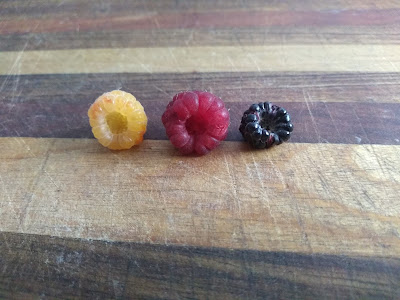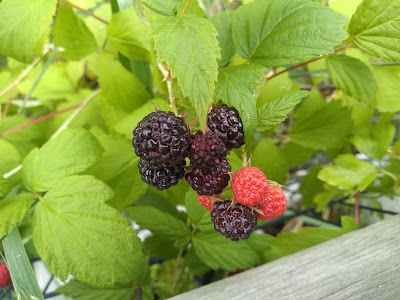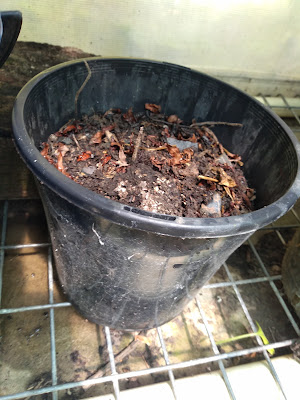I do a bit of vegetable breeding, I also breed other plants with various different aims.
A number of years ago I bred a new variety of red raspberry. I acknowledge that I am biased - I like this raspberry (Rubus idaeus). It is genetically thornless, very vigorous, incredibly productive, produces dozens of flowers per cluster, fruits multiple times per year, and tastes nicely sweet. This red raspberry performs better in my garden than any other raspberry variety I have grown. I am told it does not grow as well in subtropical gardens.
I eventually tracked down a yellow raspberry (Rubus idaeus) and did a little breeding with this too. This one has thorns (prickles). It only crops once or twice per year and has flowers in clusters of about half a dozen. The berries are pretty, they smell divine, and it tastes very sweet. What it lacks of the typical raspberry flavour it makes up for in delicate floral notes. I need to do more breeding with this to create a thornless primocane version.
After some years I got a black raspberry (Rubus occidentalis). This is a different species of raspberry to the red (or yellow) raspberry. It is not a blackberry. It is not a loganberry. It is not a youngberry. It is not a mulberry. It is not any other kind of berry, this is a black raspberry.
It drives me crazy how difficult people seem to find the concept of a black raspberry in Australia, but I digress.
 |
| Yellow, red, and black raspberries |
I am bad at describing taste, my description above really doesn't describe it well. The internet says black raspberries are "tangy, richly flavored, mildly sweet, cooling, and high in antioxidants". I am not sure that description is all that much better than mine.
 |
| Yellow raspberry, red raspberry, and black raspberry |
You will probably notice that the berries are a bit smaller than red or yellow raspberries. My comparison photos are all typical sized berries. Some berries from each plant are larger or smaller, but the ones in the photo give you a decent idea of what is normal. While black raspberries are smaller, they are still a decent size. While I would prefer them to be larger, I don't find them to be too small.
These plants are not what I would consider to have low productivity, and they do not blow me away with the size of the crops. They usually produce clusters of about half a dozen flowers. This is comparable to most raspberry varieties including my yellow raspberries, but it feels like nothing compared to my red raspberry which produces dozens per cluster.
In my garden my red raspberries have the longest picking season. They start ripening first, finish last, and produce the most berries over the season. My yellow raspberries start to ripen after the red raspberries have been cropping for a while. My black raspberries start to crop once I have been picking both the red and yellow for a few weeks.


















































